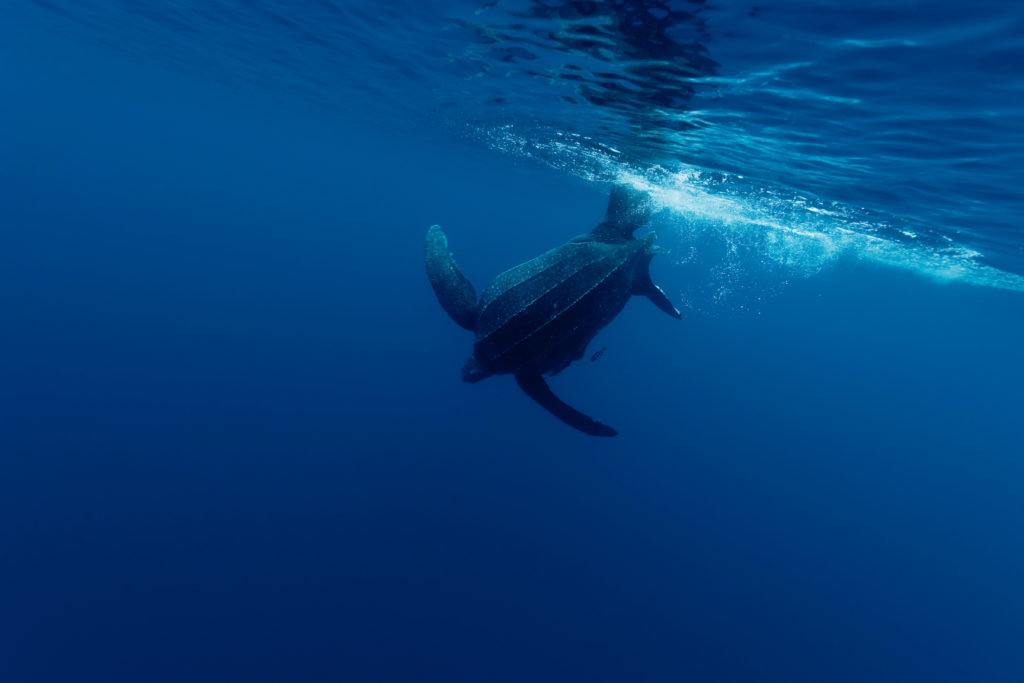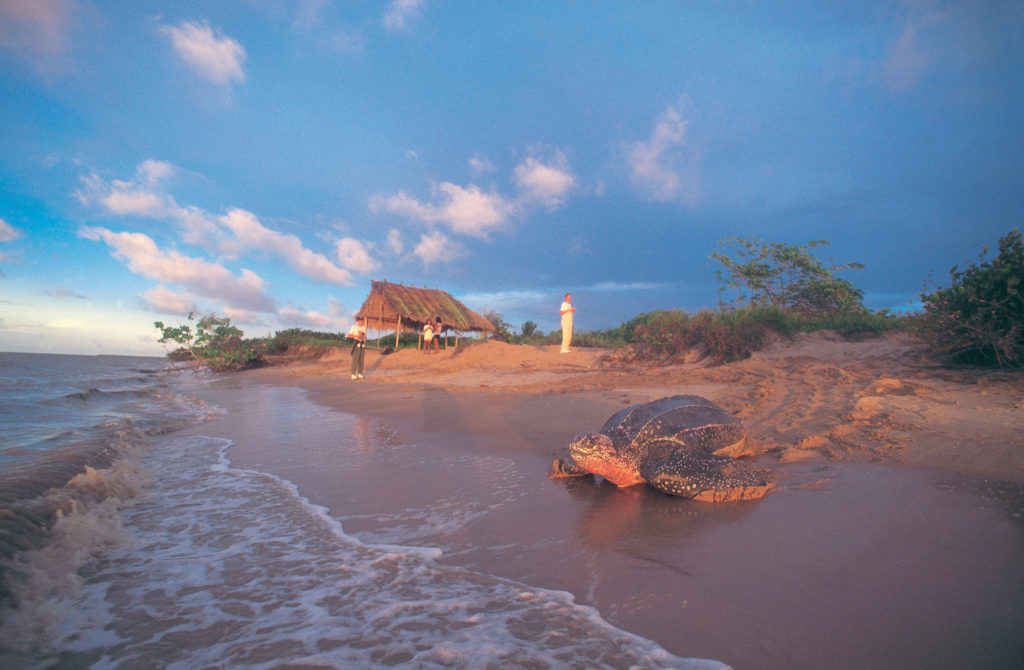Sea turtles struggling to adapt in changing waters
Fragile ocean ecosystems — already on the brink because of human activities like industrial development, unsustainable fishing and shipping practices — are being pushed past their limit by climate change.
Countless species, including the leatherback turtle, are at risk of extinction. They’ve crisscrossed oceans for over 100 million years, but we could now be witnessing the end of their journey.

Populations are falling out of balance
Temperature plays a pivotal part in determining the sex of leatherback turtles. Eggs exposed to cooler temperatures hatch as males; warmer temperatures produce females. Climate change is causing the leatherbacks’ sex ratio to fall out of balance with an over-abundance of females. Unless something changes, complete feminization of the species could take place within just the next decade.
The ocean is changing as it warms – can leatherbacks adapt?
With warmer temperatures come rising sea levels, extreme weather, more acidic waters and changing currents. These changes are altering habitats for leatherback turtles.
Warming oceans also influence prey distribution — which can further cause species to change their nesting, mating, migrating and feeding patterns — throwing off a delicate, ancient balance.
Nesting habitat is at risk

Leatherback turtles nest in protected sandy areas where eggs can mature and hatch hidden away from predators. But rising sea levels are washing away their traditional nesting areas. And coastal development projects are taking away even more viable habitat.
As the effects of climate change increase, so do the frequency and intensity of storms, which also threaten to destroy leatherback nests and decrease suitable habitat and nesting grounds.
It sounds overwhelming, but there ARE solutions.
Here’s what we’re doing to protect our oceans for leatherbacks and other marine species:
Climate action
We are protecting and restoring coastal ecosystems that absorb and store carbon in plants, algae and sediment. Nature has the potential to reduce global carbon emissions by a third.
Protecting marine areas
We are protecting well-connected healthy marine ecosystems to provide essential sanctuaries for all marine life.
No dumping
We are creating healthier, more resilient ecosystems by advocating for bans that can put an end to dangerous waste being dumped by ships in protected coastal areas.
Please help marine species like the leatherback turtle by joining the fight for healthy oceans. Make your gift here.
